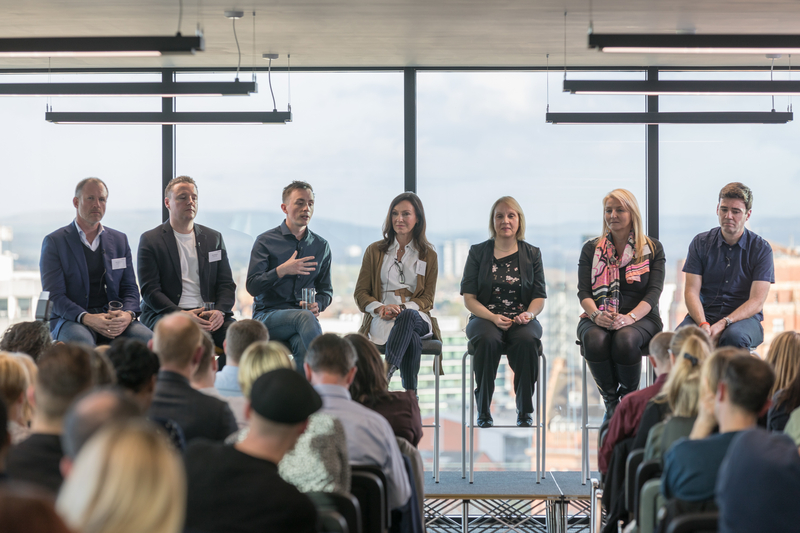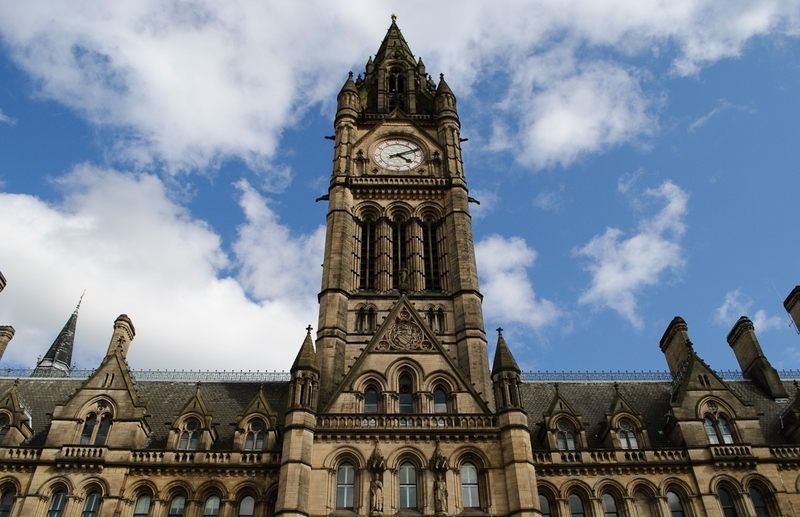Jonathan Schofield on how we inhabit politics, so might as well get involved
So I was conducting a tour for guests last week in the Northern Quarter on a Thursday at about 6.45pm. We were on Oak Street and it was a fine night.
Suddenly two beggars approached each other on the other side of the street. They started shouting, then they started hitting. Two police officers, the first I’ve seen on a city centre beat in weeks, serendipitously turned the corner and split the pair up. It was a nasty scene.
After the tour I walked down Church Street. A beggar asked me for money and I said no because I never give beggars money (and don’t understand people who do). All the agencies tell us not to give cash as this exacerbates the problem by keeping people on the streets, yet, people still give the money. Crazy. Meanwhile another beggar, a short distance away, was slumped, frozen with ‘spice’ by a cash point.
At the corner with High Street something made me look back. There’d been something not quite right with the first of the pair. I was just in time to see the man who’d asked for money standing over the zombie beggar, he stooped, picked up zombie’s raggedy cash pot and ran off. “Hey,” I shouted, but I was too far away and the man had shot down an alley in a flash.
The reason there is so much begging in the city centre is down to political decisions
I know a manufacturer in Greater Manchester who employs a small but skilled team producing a piece of industrial hardware that is sold principally abroad. In the run up to the ridiculous referendum in June last year, he asked one of his staff if he needed an hour or two off to go and vote.
“We don’t vote,” said the 56-year-old man. “I never have and neither have my kids. Nor has my wife. Don’t see the point, nothing ever changes and I don’t understand politics anyway.”
I wish my manufacturer friend had thrown a spanner at his head. Hard. How can people fail to understand that politics is the space we inhabit?
The reason there is so much begging in the city centre is down to political decisions made by a Conservative Government over swingeing austerity and previously by a spendthrift Labour Government. The only method by which we’ll get the daily horror off our streets is through politics. The reason we enjoy the benefits, beyond the problems the country is facing, is politics.

No doubt there will be a very low turnout in Thursday’s election for a Greater Manchester mayor. Maybe even a 25% turnout is ambitious. That’s a shame. Because the mayor will matter.
True, the new mayor will not be the master or mistress of all they survey across this almost 2.8m population. The mayor will have powers over police and fire services, buses, trams and £300m of housing budget, plus a significant role in sorting the spatial framework (the long-term development plan) within the remit of the Combined Authority of Greater Manchester. With health and social care he or she will be part of a collective on the devolved regional health board controlling a £6bn budget.
Yet despite not holding sweeping powers, what is important is that the winner of this election will have a presence and the presence of one. Greater Manchester will have a personality to vote in and out, somebody to hold accountable, a face. As everyone in any media knows, stories need a human face if they are to grab the largest audience. The Combined Authority is a committee of council leaders across the ten boroughs of Greater Manchester that have been doing fine work, yet, because it is not led through a figurehead personality it will always remain shadowy, despite every effort at transparency. People understand how to deal with a single person better than they do a committee.
10 things the new mayor must do...
1) Promote manufacturing and boost Greater Manchester as a producer - we need more jobs and better jobs.
2) Promote vocational skills in young people to underpin point 1.
3) Trigger a revival of the other town centres, making sure it's not all about Manchester city centre.
4) Keep the conurbation moving by regional investment and the promotion of HS3.
5) Knock heads together over homelessness/begging so we really see change.
6) Stand up for Greater Manchester boldly and with vigour in the face of indecent cuts.
7) Underline again and again that we are a multicultural region open to immigration.
8) Promote identity and a sense of place amongst the population from Primary School upwards through active involvement.
9) Use the £300m housing loan fund to promote development away from Central Manchester.
10) Improve the regional centre's tourist appeal by knocking heads together over green space, litter, way-finding.
Across all aspects of life and policy in Greater Manchester, what the new mayor might also do is knock heads together, coordinate thought, highlight the issues that need highlighting.
With homelessness and city centre begging, for instance, while the winner in Thursday’s election won’t be able to say “I want this and this doing now,” they will be able to exert pressure and create movement. They will be able to go public about issues and precipitate change.
Got a problem with policing and fire services in our various cities, towns and suburbs? How about transport? Then we will be able to appeal directly to a mayor in whose interest, if they wish to remain in power, it will be to respond.
At the same time the elected mayor will be projecting the image of Greater Manchester across the world, selling the region, showing that we present a united front.
We all should vote on Thursday and again in June’s General Election. If we don’t vote then we are children who have to wait for the adults to make up their minds.

At elections I always bring to mind the events of 16 August, 1819 when fifteen people from Greater Manchester died for the right to vote and for representation at the Peterloo Massacre. If people don’t vote then they betray those people and they betray themselves, committing themselves to a type of helplessness and apathy.
Back in 1819 securing democracy through the vote seemed a matter of life and death. If we don’t think it’s the same in 2017 we’re deluded. Politics is what we inhabit every day, we have to be involved.
When, where and how to vote:
When: The Greater Manchester Mayoral Election takes place on Thursday 4 May (between 7am and 10pm).
Where: If you're registered to vote then you can simply walk into your local polling station between 7am and 10pm (find where your nearest polling station is here). If you have registered to vote by post you should have already received your pack, which you should fill-in and post ASAP (you can also hand this in in person at your polling station).
How: Greater Manchester's Mayor will be elected via a supplementary vote system - this means you'll have a first choice and a second choice. Should a candidate receive more than half of all first choice votes, they will be announced as the winner. Should this not happen, then the two candidates with the most first choice votes move onto a second round, where second choice votes will then be counted.
...but who are the candidates? And what will they do?














